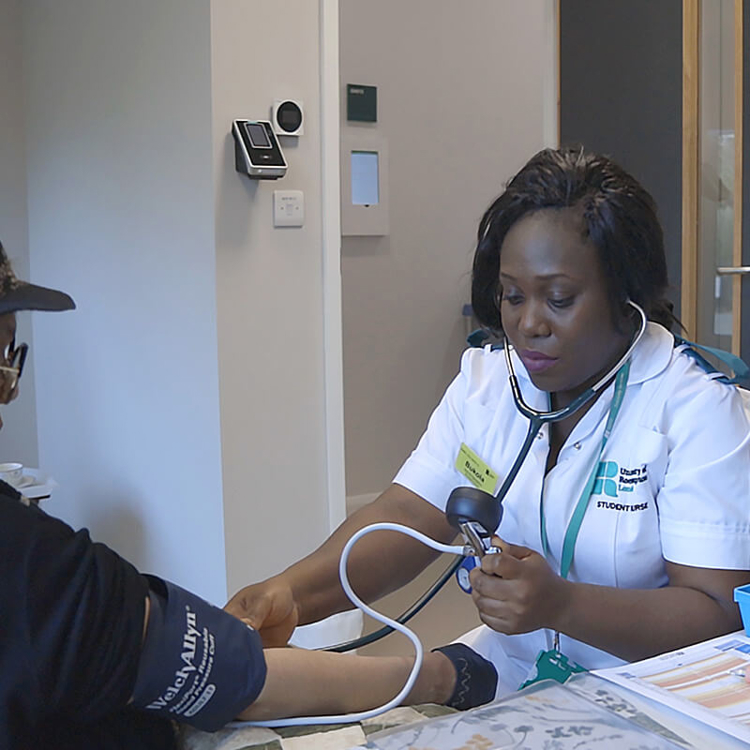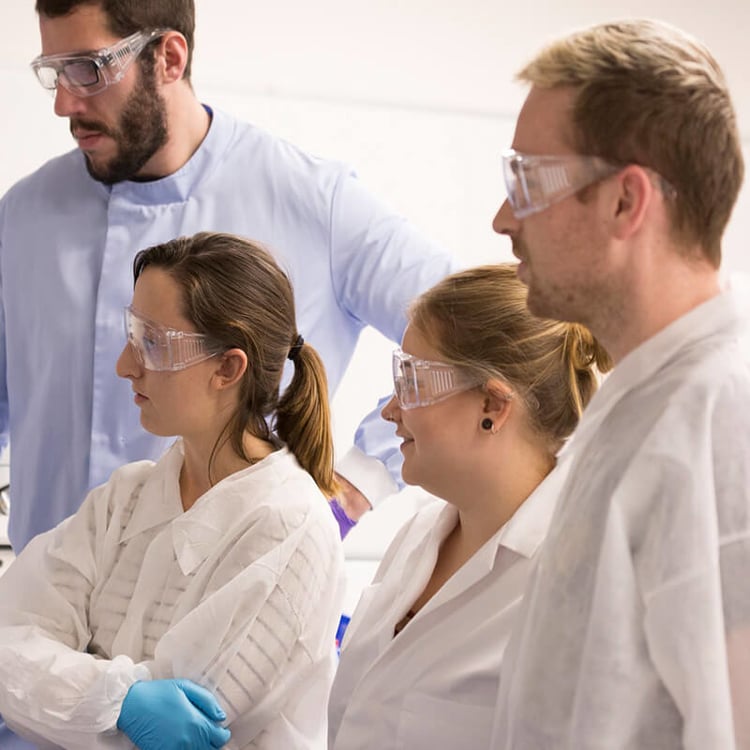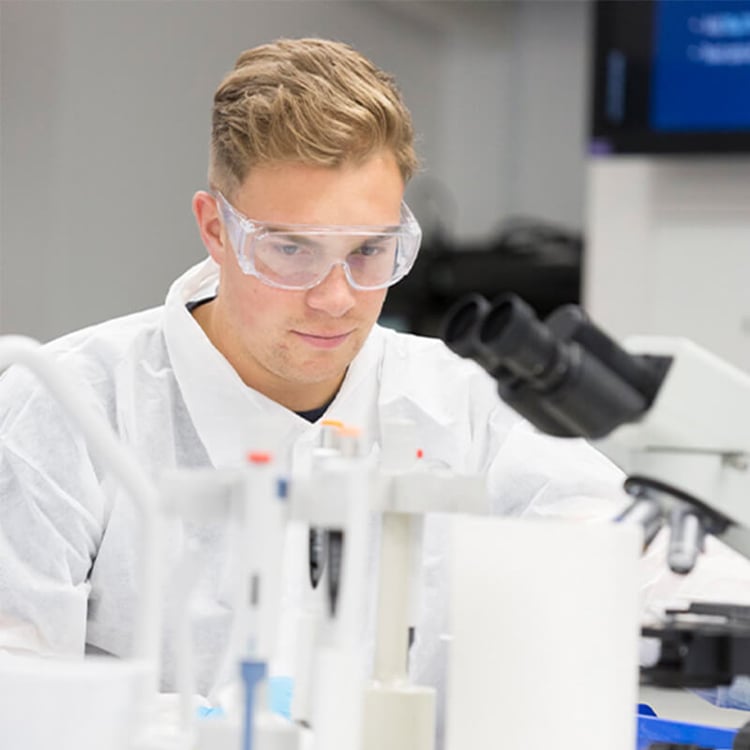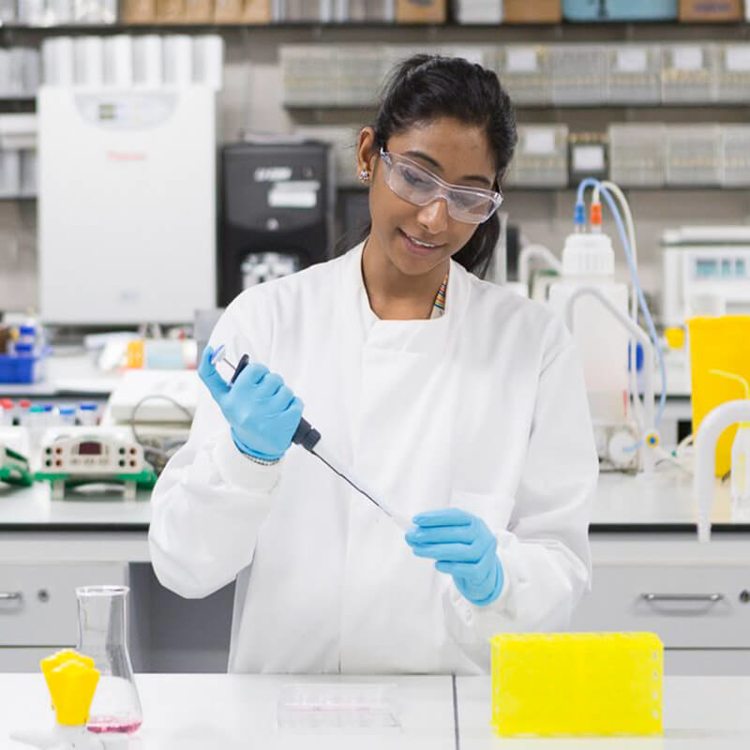You'll need:
112–128 UCAS points (or equivalent)
Foundation Year: 64–80 UCAS points (or equivalent)
International Foundation Pathway:
64 UCAS (or equivalent)
IELTS: 5.5
UCAS code:
C300
C301 (if choosing Foundation Year)
Start date(s):
September 2026
Discover how to make a real impact on our planet by exploring the science of life in all its diversity.
On this programme, you’ll gain the skills, knowledge, and professional experience needed to address some of the most urgent environmental challenges facing the world today.
In a time when sustainability and conservation have never been more important, this programme combines scientific understanding with practical field experience to prepare you for a wide range of meaningful careers.
You’ll build a strong foundation in the study of animal biology, behaviour, and ecology, learning how to apply scientific principles to promote a sustainable and harmonious coexistence between humans and the natural world.
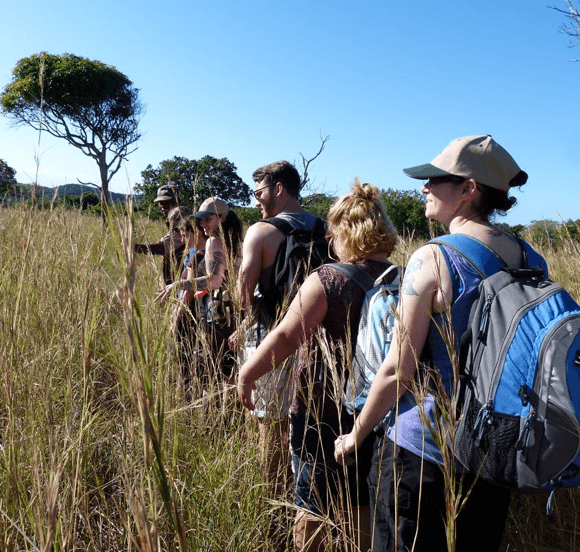
Did you know?
Fieldwork is at the heart of the course, with opportunities to study in real-world environments, including field trips to Wales and South Africa.
Through hands-on learning, you’ll develop essential skills in ecological surveying, data interpretation, laboratory analysis, and animal behaviour research. Experiences which will allow you to apply scientific theory to real-world environmental challenges and understand the complex interactions within ecosystems.
You’ll also build confidence in research design, scientific communication, and critical thinking, while strengthening transferable skills such as teamwork, project management, and ethical reasoning.
As you progress, you’ll master advanced tools and technologies for data collection and statistical analysis, allowing you to contribute to evidence-based solutions for biodiversity and conservation.
Best modern university in the UK for Zoology
(Guardian University Guide 2024)
![]()
Ranked 1st in London for Teaching, Learning Opportunities and Resources
National Student Survey 2024 for Zoology

#1 in London for student satisfaction in Zoology
National Student Survey 2024.

Modules
Module details: In this module, you will learn from, about, and with peers from other professional programmes, supporting interprofessional collaboration. You will develop essential academic and study skills while exploring what it means to be a professional. The module will examine key ethical, legal, and regulatory frameworks relevant to each student’s chosen discipline. Through shared learning and reflection, you will begin to build a strong professional identity within the wider context of health and social care practice.
In this module you will explore the billions of years of evolution and adaptation within the animal kingdom. From single-celled organisms to complex animals, life has diversified into countless forms, each uniquely adapted to survive and thrive in our planet’s variety of environments, illustrating the dynamic processes that shape life on Earth.
The aim of this interprofessional module is to introduce you to the key concepts and core foundations for the scientific study of life. A strong interprofessional ethos is built by bringing you and other students together and creating the opportunity to interact with and learn alongside students from a breadth of professional programmes. Subsequent modules will build on and integrate the strong foundations gained through this module to support the development of required profession specific knowledge and skills. You will develop a solid understanding of the structure and function of living organisms through the study of anatomy and physiological systems relevant to your programme of study. You will explore core physiological principles across the lifespan and, where appropriate, examine deviations from normal function, including aspects of pathophysiology.
This module offers a foundational introduction to molecular biology within Biomedical Science and other biological sciences. You will study the chemical structure and function of DNA, RNA, and proteins, gaining insight into how genetic information is stored, transmitted, expressed, and regulated in prokaryotic and eukaryotic cells. Core topics include DNA replication, transcription, translation, the Genetic Code, and the Central Dogma of Molecular Biology. You will also examine enzyme function, genetic inheritance patterns, and the relationship between genotype and phenotype in normal physiology and disease.
These are the current planned modules on this course and may be subject to change.
This module centres around a 5-day residential field course at Dale Fort in Wales, during which you get intensive, hands-on experience studying various UK ecosystems from coastlines and woodlands to rivers and sand dunes. You’ll then head back to London, where data collection in the field continues, including bringing samples into the lab for further inspection. The training in this module develops high level field and laboratory skills for the expert naturalist.
The focus here is on the evolution, comparative anatomy and physiology of animals with backbones, including fish, amphibians, reptiles, birds and mammals including the primates (non-human and human). You will develop a holistic understanding of vertebrate biodiversity, adaptation, and conservation.
You will gain an understanding of the scientific method, including how to develop and undertake robust studies and subsequent data analyses, is critical for zoologists. You will also learn how to critique published work, classic pitfalls of experimental design and how to analyse ‘big data’ with stats packages and by coding.
Organisms don’t exist in isolation, but interact with other individuals and other species, sometimes synergistically and other times antagonistically. Understanding species interactions is vital for ecology, conservation, and predicting the impacts of environmental changes on biodiversity and ecosystem stability. In this module you’ll study a plethora of species interactions within various ecosystems, including pollination, predation, competition, mutualism and parasitism. Themes include survival, reproduction and community structure.
These are the current planned modules on this course and may be subject to change.
This course offers all students the option of a one-year paid work placement, to boost your employability even further. If you choose this route, you will take the placement following year two of your course, and then return to complete your degree.
Why take a placement?
A placement year is the perfect opportunity to gain valuable work experience, to build on the career skills we will teach you on this degree. The connections you make on the placement will improve your career prospects further, and equip you with the skills you need to secure graduate-level employment.
How we support you
The University's Placement and Work Experience Team are experts at helping you to secure a placement. They will work closely with you from the start, helping you research potential employers, discover placement opportunities, create and pitch your CV, and will coach you to perform well in interviews. We aren't able to guarantee a placement, but our sector-leading advisors will give you the best possible chance of securing one.
Find out more about how we'll support you
We understand that your plans might change once you start your programme. If you decide not to do a placement, you will have the option of completing the three year version of your programme.
Whatever your choice, you will have access to many opportunities for work experience through our Placement and Work Experience Team, and access to face-to-face and 24/7 online careers support.
Explore how animal behaviour has evolved and is adaptive to particular environmental pressures. You’ll explore foraging, mating, communication, social structures and predator-prey interactions, revealing how an animal’s behaviours works, and how it enhance its survival and reproduction.
This dynamic module focusses on current global ecological threats and the associated cutting-edge topics in ecology and zoology. Planetary crises like climate change, habitat loss, plastic pollution and biodiversity decline threaten life-giving global ecosystems. How robustly can we predict future scenarios for our changing world, and how effective might mitigation strategies be? Moreover, how do politics and science interact to influence humanities response to these issues? On this module, you will become equipped to understand these complex, interconnected issues, and how society might best navigate competing interests and information to develop sustainable solutions.
In this module, you’ll be acquiring an in depth understanding of a focussed area of research, completing a year-long sustained and rigorous investigative project. You’ll be deploying rigorous scientific techniques to research and analyse the zoological topic of your choice, supported all the way by a supervisor with international expertise in the field.
You’ll gain invaluable vocational experience, with insights and understanding about graduate work associated with a Biological Sciences degree. Supported by an academic tutor, along with 50 hours minimum at work, you will be given a professional edge by graduation.
These are the current planned modules on this course and may be subject to change.
This course offers a foundation year, which takes place at the beginning of your studies. Studying a foundation year will give you academic and practical experience, and a strong introduction to your subject, ensuring you succeed on your undergraduate degree.
30 credits
You will develop your core academic and integrated English language skills of speaking, listening, reading and writing. You will become familiar with key academic skills and concepts, such as referencing methods and awareness of academic integrity and tone. You will apply these skills and knowledge to both broad topics and also your chosen subject pathway.
Teaching and learning
You will be required to actively engage in on-campus learning for up to 10 hours a week.
You will be taught through a full range of teaching and learning methods, which include lectures, seminars, workshops, discussion groups, group directed tasks and presentations. This will enable you to learn from your peers and tutors in both structured and information settings.
You will be encouraged to think creatively about your approach to learning and discussions with your peers. You will also have access to recordings, resources, links and signposting through Moodle to enrich your learning.
Assessment
You will be assessed through group and individual presentations, comparative and reflective essays, multiple choice exams, coursework and reports, oral exams, portfolios, case studies and blogs.
30 credits
You will develop your core academic and integrated English language skills of speaking, listening, reading and writing. You will become familiar with key academic skills and concepts, such as referencing methods and awareness of academic integrity and tone. You will apply these skills and knowledge to both broad topics and also your chosen subject pathway.
Teaching and Learning
You will be required to actively engage in on-campus learning for up to 10 hours a week.
You will be taught through a full range of teaching and learning methods, which include lectures, seminars, workshops, discussion groups, group directed tasks and presentations. This will enable you to learn from your peers and tutors in both structured and information settings.
You will be encouraged to think creatively about your approach to learning and discussions with your peers. You will also have access to recordings, resources, links and signposting through Moodle to enrich your learning.
Assessment
You will be assessed through group and individual presentations, comparative and reflective essays, multiple choice exams, coursework and reports, oral exams, portfolios, case studies and blogs.
30 credits
You will develop your research, numeracy and information technology skills. You will investigate the difference between primary and secondary research, conduct your own research project and demonstrate your findings through data analysis. You will also develop your awareness of equality, diversion and inclusion in the UK, through a real-world issue; discrimination in the workplace.
Teaching and learning
You will be required to actively engage in on-campus learning for up to 10 hours a week.
You will be taught through a full range of teaching and learning methods, which include lectures, seminars, workshops, discussion groups, group directed tasks and presentations. This will enable you to learn from your peers and tutors in both structured and information settings.
You will be encouraged to think creatively about your approach to learning and discussions with your peers. You will also have access to recordings, resources, links and signposting through Moodle to enrich your learning.
Assessment
You will be assessed through group and individual presentations, comparative and reflective essays, multiple choice exams, coursework and reports, oral exams, portfolios, case studies and blogs.
30 credits
The module provides you with an essential introduction to the core principles and concepts that underpin biological sciences and offers you a multidisciplinary approach to understanding life at the molecular, cellular, and organismal levels.
You will examine how genetic, environmental, and socio-economic factors affect biological processes, with a focus on how certain groups may experience differing health risks or benefits. For example, you will study how genetic disorders, and metabolic diseases manifest differently across ethnic groups, and how access to healthcare or diagnostic tools can vary globally.
Throughout the module, case studies and discussions will emphasize the importance of inclusive practices in scientific research and healthcare, ensuring that biological studies and their applications reflect and serve the needs of all communities. Additionally, career-focused workshops will address the importance of diversity in STEM fields, providing you with a broader understanding of career opportunities and the role inclusivity plays in advancing biological sciences.
The module addresses sustainability through its focus on human health, environmental factors influencing biology, and the role of biological sciences in solving global challenges.
Topics such as metabolic processes, water balance, and body fluid composition can help you understand the body’s need for sustainable nutrition and hydration. Furthermore, by discussing diagnostics such as blood glucose testing and the effects of pollutants or chemicals (like endocrine disruptors in cosmetics), the course encourages you to think critically about sustainable practices in healthcare and their impact on individual and environmental health.
You will learn about genetic disorders and viral infections that affect populations worldwide, gaining insight into health issues across different regions. Case studies on health disparities and global diseases will be integrated into lessons to ensure you are aware of the worldwide scope of biological and medical science.
Teaching and learning
Through a combination of lectures, interactive seminars, laboratory sessions, and group projects, you will explore topics such as cellular structure and function, molecular biology, biochemistry, physiology, and homeostasis.
The module also gives you the opportunity to develop practical laboratory skills, critical thinking, and quantitative analysis, ensuring you are well-prepared for advanced study, research and undergraduate level.
The teaching delivery for each module consists of one, one-three-hour lecture and one, two-hour seminar per week. Lectures will cover core indicative content, while seminars will consist of research workshops, small group learning on relevant case studies and practical lab sessions.
You will also have an additional 30 minutes of online support each week, which will consist of formal preparation/review of lab sessions, or exam preparation (e.g. quizzes).
Assessment
This module will be assessed using an open book in-class test and a lab report and reflection.
50% - open book in-class test, consisting of 30 multiple choice questions.
50% - lab report and reflection, the report will include detailed analysis (quantitative and qualitative) of a chosen practical lab session, with an evaluative reflection of the practical limitations and implications of the undertaken research/experimentation.
30 credits
This module provides you with a comprehensive introduction to the principles of human health, the mechanisms underlying diseases, and the tools used to study them.
This interdisciplinary module integrates knowledge of physiology, pathophysiology, epidemiology, and biostatistics to equip you with a well-rounded understanding of the factors that influence human health and the burden of disease.
The module explores health disparities and inequities across global populations, emphasising how factors like ethnicity, socio-economic status, gender, and geography influence health outcomes. You will analyse worldwide health statistics, such as life expectancy, infant mortality rates, and access to healthcare, to understand systemic inequalities. Case studies will focus on specific healthcare challenges, such as the unequal burden of non-communicable diseases (NCDs) in low- and middle-income countries, or disparities in vaccination rates across regions.
Sustainability is embedded by exploring the role of health systems in promoting long-term wellbeing and reducing environmental impacts. Topics such as the rise of sustainable healthcare practices, including reducing medical waste and using renewable resources in healthcare delivery, will be discussed. You will also reflect on how public health policies can contribute to sustainable development goals by promoting preventative care and addressing environmental factors that affect human health.
Global engagement is incorporated through an examination of how diseases and health interventions are influenced by global factors such as pandemics, climate change, and globalisation.
You will analyse global health policies, including the role of organisations like the WHO in managing health crises, and investigate variations in disease prevalence and healthcare access across different countries. Comparative research tasks will help you appreciate the global nature of health challenges and solutions, such as those experienced during the COVID pandemic.
Teaching and learning
Through a blend of lectures, practical sessions, and research-focused activities, you will explore the key physiological systems that maintain homeostasis, the causes and mechanisms of diseases, and the role of public health interventions.
The module will also introduce you to fundamental research methodologies and statistical analysis, emphasizing the importance of data-driven decision-making in health sciences.
The teaching delivery for each module consists of one, one-three-hour lecture and one, two-hour seminar per week. Lectures will cover core indicative content, while seminars will consist of research workshops, small group learning on relevant case studies and practical lab sessions.
You will also have an additional 30 minutes of online support each week, which will consist of formal preparation/review of lab sessions, or exam preparation (e.g. quizzes).
Assessment
This module will be assessed using an infographic and a data analysis report.
50% - infographic, you will design an engaging and evidence-based infographic that communicates a key public health message to a target audience.
50% - data analysis report, you will be required to complete a structured data analysis report based on the analysis of a provided dataset related to a public health issue.
These are the current planned modules on this course and may be subject to change.
Careers
A BSc Zoology degree from Roehampton provides an excellent foundation for a wide range of rewarding and impactful careers.
Our degree is designed to equip you with the scientific knowledge, practical skills, and real-world experience needed to thrive in diverse professional settings.
You will graduate with valuable skills in research, data analysis, communication, and critical thinking, all of which are highly sought after by employers across the science and environmental sectors.
Our graduates go on to work in a variety of zoological specialisms, including:
- Veterinary science
- Conservation, such as ecological consultancy
- Animal research
- Policy and sustainability roles, such as sustainability officers
- Museum curation and education
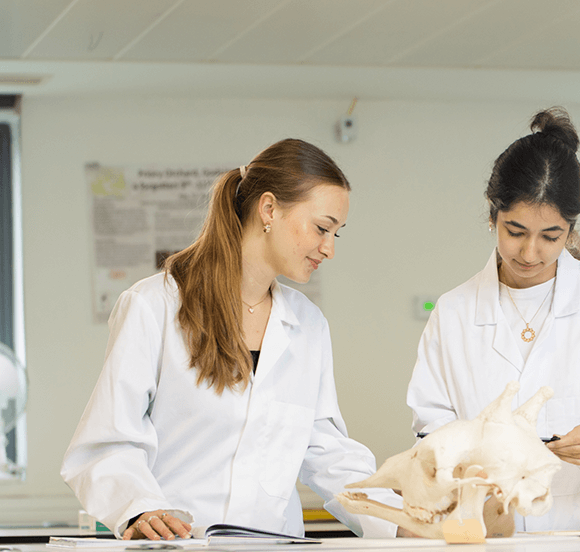
Continue your studies at postgraduate level
With our BSc Zoology degree, you can also progress to postgraduate study or further training for careers in animal handling and ecological monitoring.
The Student Futures team is here to support you throughout your time at Roehampton and beyond.
They offer services tailored to your needs, helping you take confident steps towards your future.
You’ll have access to a wide range of career workshops and events, where you can engage with employers and develop the skills you need to succeed in the workplace.
These opportunities will help you build your CV, prepare for interviews, and connect with successful Roehampton graduates who are thriving in their careers. You’ll also be able to engage with our partners across London and beyond.
Wherever you want to go in the future, you'll be preparing for the world of work from your very first day.
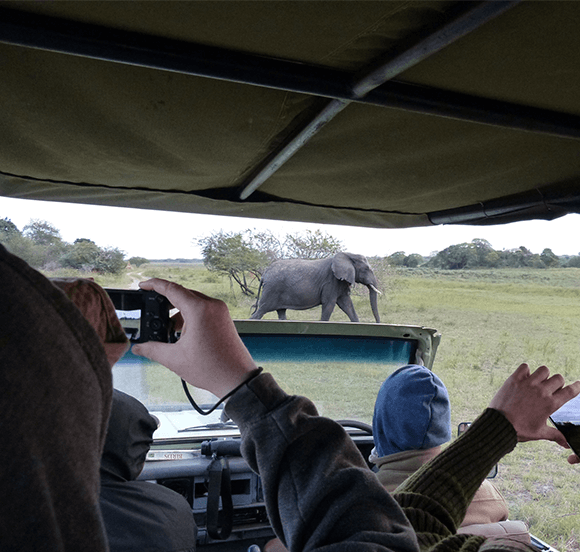
Gain real-world skills on placement
Enhance your degree while boosting your employability.
Our Workplace Learning module in year 3 allows you to gain hands-on professional experience locally or abroad, including opportunities with partners in South Africa.
You will develop practical skills that prepare you for careers in conservation, environmental consultancy, research, education, and policy development.
Learning & assessment
How you'll learn
You’ll experience a vibrant, modern curriculum in our state-of-the-art facilities.
You’ll explore the biology, behaviour and conservation of species on a campus surrounded by some of London’s most stunning green spaces.
You’ll learn in a variety of ways, through engaging lectures, hands-on lab work and practical field excursions.

How you’ll be assessed
You’ll complete a variety of assessments designed to develop your understanding and practical skills while giving you insight into real-world industry practices.
These include:
- Online tests
- Laboratory reports
- Poster and slide presentations
- AI critiques
- Field and lab notebooks
- Portfolio submissions
- Case studies
- Research and data collection projects
You’ll graduate from Roehampton with a strong grasp of both the theory and hands-on applications of Zoology, fully prepared for the next step in your career or further study.

Discover learning beyond the classroom
Explore, discover, and get hands-on with nature right on our doorstep.
Visit world-class museums, zoos, and green spaces such as Richmond Park, Kew Gardens, Chessington Zoo, and Wimbledon Common.
In year 2, dive into the wild on our week-long field course in Wales. Study rivers, salt marshes, and rocky shores while gaining practical skills in ecology, animal behaviour, and physiology – all essential for a career in conservation and habitat management.
In year 3, take your adventure global with an optional two-week field course in South Africa*. Witness conservation in action, gain international experience, and immerse yourself in a new culture.
Read more about what the experience is really like
*Please note the South African field trip is not included in tuition fees.
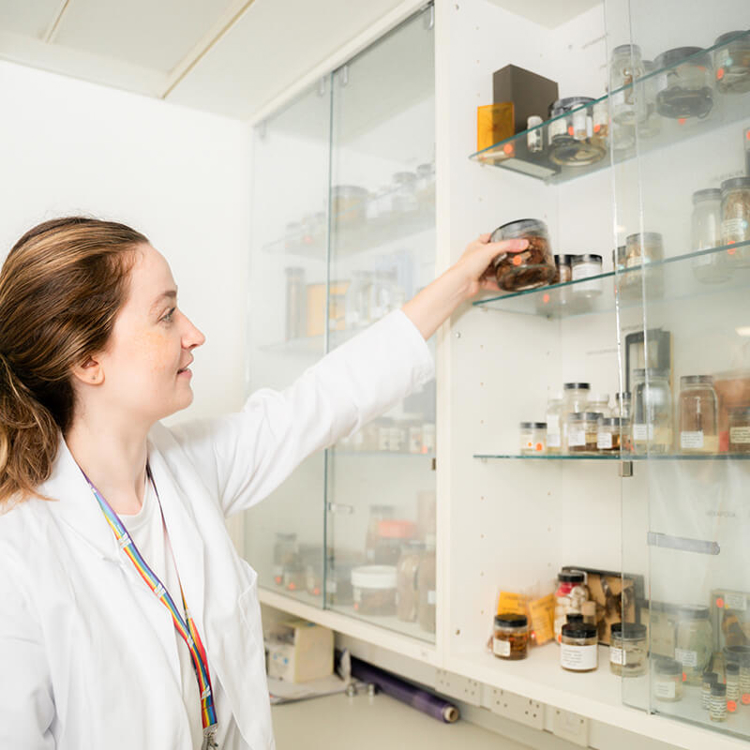
Hands-on learning in state-of-the-art facilities
Our Zoology facilities are designed to support practical learning and real-world research.
Based at Whitelands Campus, you’ll have access to laboratories equipped for DNA analysis, electrophysiology, microscopy and more, as well as computer suites supported by expert laboratory and IT technicians.
You’ll gain essential laboratory skills such as titration and pipetting, and learn how to design and carry out experiments addressing topics from climate change to the biological and physiological traits of animals.
Open days
Get a real taste of our campus, community and what it’s like to study at Roehampton
Applying
Full-time UK undergraduate students apply through UCAS.
Entry tariff
112–128 UCAS points (or equivalent)
Foundation Year: 64–80 UCAS points (or equivalent)
Looking to work out your UCAS points or find out about our entry requirements? Find out more.
When we consider applications to study with us, we form a complete view of your achievements to date, and future potential, and can offer flexibility in entry requirements. Find out more about our Contextual Offer scheme.
Specific entry requirements
A-level / BTEC (or equivalent qualification) including Biology or another Science subject.
GCSE (or equivalent) requirement: Maths, Grade C / 4.
Contact us for further information.
General entry requirements
International undergraduate students apply through our direct application system.
Entry tariff
112–128 UCAS points (or equivalent)
International Foundation Pathway:
64 UCAS (or equivalent)
IELTS: 5.5
Looking to work out your UCAS points or find out about our entry requirements? Find out more.
When we consider applications to study with us, we form a complete view of your achievements to date, and future potential, and can offer flexibility in entry requirements. Find out more about our Contextual Offer scheme.
Specific entry requirements
A-level / BTEC (or equivalent qualification) including Biology or another Science subject.
GCSE (or equivalent) requirement: Maths, Grade C / 4.
Contact us for further information.
General entry requirements
Fees and funding
UK students
Tuition fees
| Entry date | Undergraduate Year 1 | Undergraduate Foundation Year |
|---|---|---|
| September 2026 | £9,790 | £9,790 |
Prices shown are for the first year of your degree.
Funding your studies
We also provide other ways to support the cost of living, including on-campus car parking, hardship support and some of the most affordable student accommodation and catering in London.
International students
Tuition fees
| Entry date | Undergraduate Year 1 | Undergraduate Foundation Year | International Foundation Pathway |
|---|---|---|---|
| September 2026 | £17,628 | £17,628 | £17,628 |
| January 2027 | – | – | £17,628 |
Prices shown are for the first year of your degree.
Funding your studies
We also provide other ways to support the cost of living, including on-campus car parking, hardship support and some of the most affordable student accommodation and catering in London.


